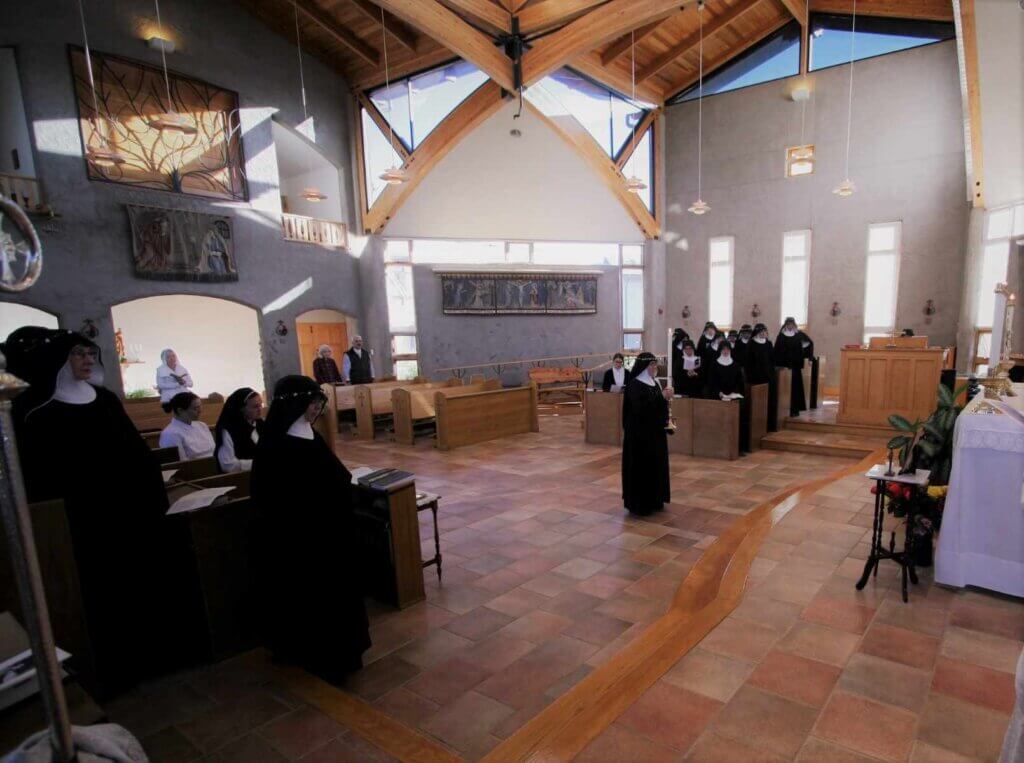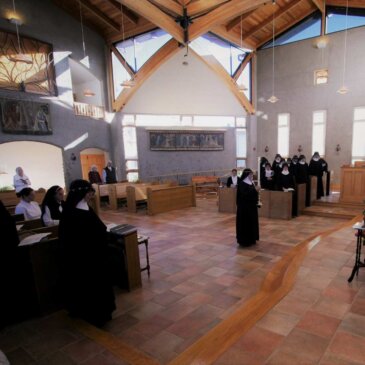A reflection by Mother Maria-Michael Newe, OSB
In the first year of his reign, King Cyrus issued a decree:
Ezra 6:3, 7-8, 12
Let the governor and the elders of the Jews continue the work on that house of God; they are to rebuild it on its former site. I also issue this decree concerning your dealing with these elders of the Jews in the rebuilding of that house of God: Let these men be repaid for their expenses, in full and without delay from the royal revenue, deriving from the taxes of West-of-Euphrates, so that the work not be interrupted.
I, Darius, have issued this decree; let it be diligently executed.
In the book of Ezra, we hear how King Darius encouraged the building of the house of God. Would that our world had leaders that cared about God’s will, and that encouraged the things of God – I think there would be greater peace! In Chapter 2 of the Rule of St. Benedict, we hear what kind of person the Abbot should be: “Above all things, he must be careful not to take lightly the souls committed to his care, or to have more care for fleeting, worldly things than he has for them. Rather, he must always consider that he has undertaken the government of souls, for which he must give an account. And so that he will not complain out of desire for worldly things, he must remember that it is written, ‘seek first the kingdom of God’ and again, ‘nothing is lacking to those who fear him.’” Worldly leaders do have to worry about worldly things to an extent, but I wish I could send all the leaders around the world a copy of the Rule of St. Benedict, to share some insight on how God might help them out. This world belongs to God, and I wish there was more of a sense of serving Him in it. Let us pray hard for our leaders, that they will have a good sense of protecting the things of God, and that they would lead the people of the world to live on a higher plane, soaring with the eagles, rather than giving in to living as earth worms.
As religious, we also have a role to play in helping this change come about. King Darius instructed that the workers should be paid “from the royal revenue, deriving from the taxes of West-of-Euphrates,” (Ezra 6:8). Nobody likes taxes, yet I was thinking of how in the spiritual realm, the religious are the rich. We live in the house of God, we live to do the work of God, and so many others are tasked with doing the work “of the world.” So God taxes the rich, and asks us, “Can I have some of your works? Can I have some of your graces? Can I have some of your prayers to uphold those who are out in the world?” Yes, we are taxed a little bit extra: “Will you wake up a little bit earlier? Will you be on time for the Divine Office? Will you stay one second longer to offer that for the people?” These things are asked of us, because through them, God is “diligently executing” His work. If we give freely of the little extra things the Rule asks of us, if we do them specifically and mindfully, for the good of others, we will truly build up the body of Christ in the way in which we have been asked. We are richly blessed, and it is a joy to pay these taxes.

Mother Maria-Michael Newe, OSB, celebrated her 45th Anniversary of Monastic Profession on September 8. During Mass, she led the nuns of the Abbey of St. Walburga in singing the “Suscipe” chant (Translation: “Uphold me, O Lord, and I shall live, according to your promise; do not disappoint me in my hope.”)

